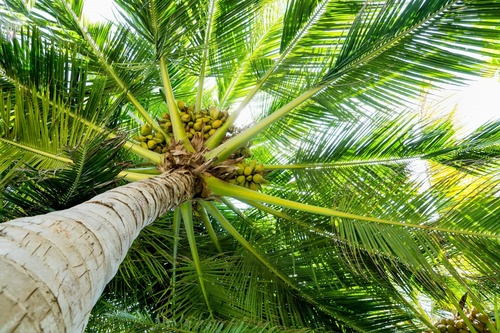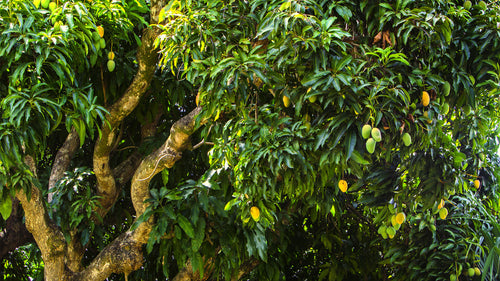Agroforest Allies: NICE’s Employee Engagement Through Tree Planting
NICE has embarked on a meaningful tree plantation initiative that embodies the agroforest concept, focusing on sustainable practices and employee enga Read more
Plantation Site Gallery
Project Update 3

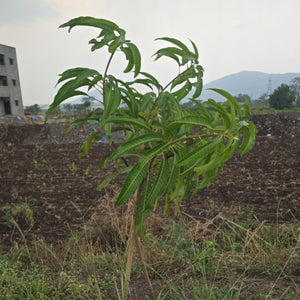
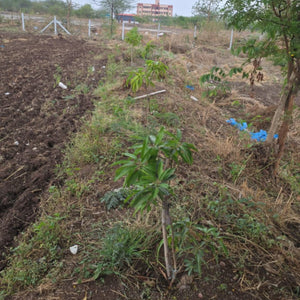
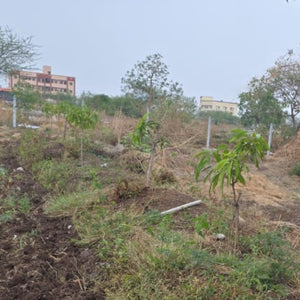
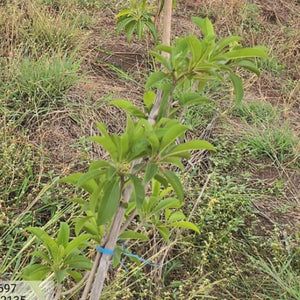
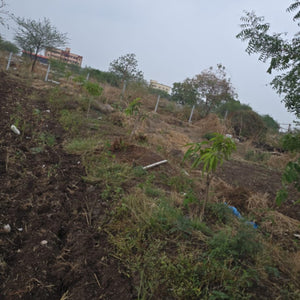
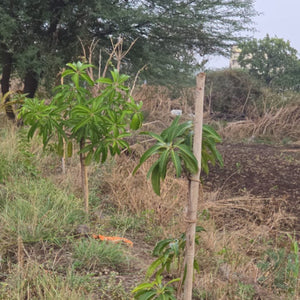
Project Update 2
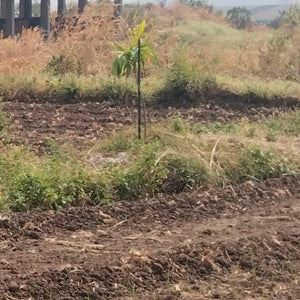
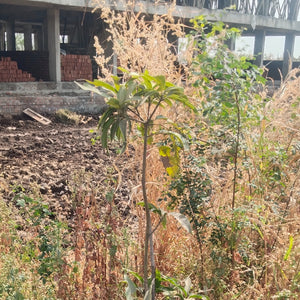


Project Update 1
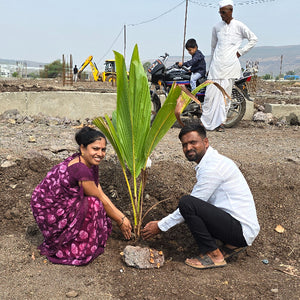
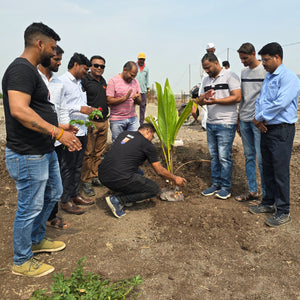
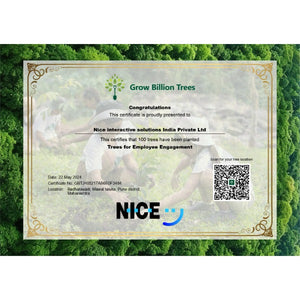
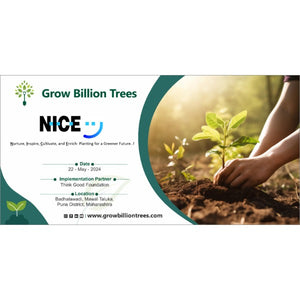
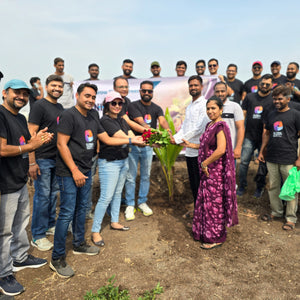
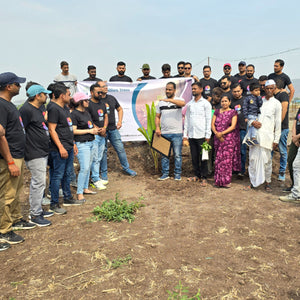
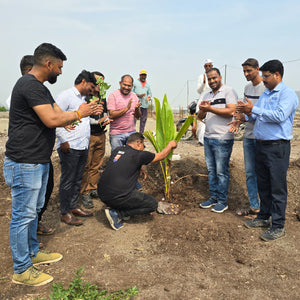
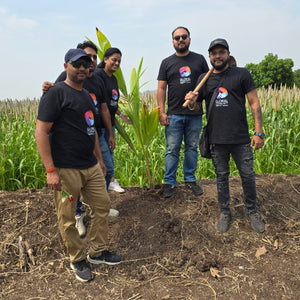
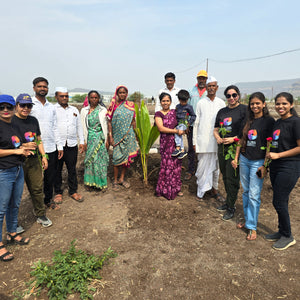
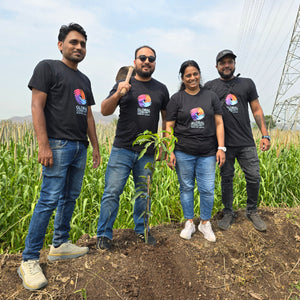
Digital Forest
Forest with 100 Trees planned
Want to plant your tree now?
Plant a Tree @ 299Trees Planted
Agroforest Allies: NICE’s Employee Engagement Through Tree Planting
NICE has embarked on a meaningful tree plantation initiative that embodies the agroforest concept, focusing on sustainable practices and employee engagement. This initiative not only aims to enhance biodiversity and improve the environment but also fosters a strong sense of community among employees. The program encourages staff participation in planting trees in designated agroforest areas, which integrate trees, crops, and livestock synergistically.
Agroforestry is a dynamic land management system that offers numerous benefits, particularly to farmers. By combining agriculture and forestry, farmers can achieve enhanced income diversification through the production of timber, fruits, fodder, and other valuable resources alongside traditional crops. This system improves livelihoods by creating multiple revenue streams, reducing economic risks tied to single-crop farming. Additionally, agroforestry reduces farming costs by naturally enhancing soil fertility, improving water retention, and minimizing the need for chemical fertilizers and pesticides. The integration of trees and livestock in farming systems also provides natural shade, prevents soil erosion, and promotes better microclimates, increasing resilience to climate change.
Through hands-on activities, participants in NICE’s initiative learn about the importance of agroforestry in combating climate change and promoting sustainability. By investing in this agroforest initiative, NICE not only contributes to environmental health but also enriches employee experience, promoting teamwork and personal growth. This program reflects NICE’s commitment to sustainability and corporate social responsibility, fostering a greener, healthier planet while empowering farmers to achieve improved livelihoods and sustainable farming practices.
Project Planning & Execution
No of Trees: 100 Trees
Plantation Location: Badhalawadi, Mawal Taluka, District Pune, Maharashtra 410507
Plantation Date: 22nd May 2024
Name of Species: Mango, Chiku, Coconut
Species Selection & Its Benefits:
The initiative prioritizes the planting of native and regionally suitable tree species, ensuring high survival rates and fostering long-term ecological stability. By aligning tree selection with the farmer’s needs and local market demand, the project promotes environmental sustainability while offering a reliable source of long-term income. The farmer's consent and active involvement played a crucial role in selecting the tree species, ensuring seamless integration with existing agricultural practices.
For this initiative, a single farmer was supported with the plantation of 100 fruit trees, comprising Mango (Mangifera indica), Chiku (Manilkara zapota), and Coconut (Cocos nucifera). Mango was selected for its strong market demand, long-term profitability, and ability to thrive in the region’s agro-climatic conditions.
Chiku was chosen for its relatively short gestation period, consistent yields, and steady market value, making it a dependable early income source. Coconut was included for its diverse utility from fruit and oil to coir and water, contributing to both ecological diversity and income generation.
This thoughtful species selection was made with the farmer’s active participation and consent, ensuring compatibility with existing farming systems and enhancing ecological balance. This approach not only strengthens the farmer’s livelihood but also aligns with NICE’s broader commitment to environmental conservation, rural empowerment, and meaningful employee engagement.
Beneficiaries Details
| SN | Farmer Name | Google Location | Village Name | Plot Size | Mango Planted | Chiku Planted | Coconut Planted |
| 1 | Vishwas Daitonde | https://short-link.me/12H6G | Badhalawadi | 1.5 Acre | 90 | 5 | 5 |
Planting Methodology and Its Advantages
Agroforestry: NICE’s tree plantation initiative is rooted in the agroforestry concept, a sustainable land management practice that not only benefits the environment but also provides additional income for farmers. By integrating trees with agricultural landscapes, farmers can generate revenue through fruit production, reduce dependency on chemical inputs, and diversify their income streams, ensuring financial resilience for rural communities. Agroforestry enhances soil fertility, improves water retention, and prevents erosion, contributing to long-term ecological stability. It supports biodiversity, promotes natural pest control, and creates favourable microclimates that enhance agricultural productivity by regulating temperature, reducing wind impact, and providing shade.
As part of its ongoing commitment to global environmental stewardship, NICE recognizes agroforestry as a powerful strategy for carbon sequestration, ecological restoration, and sustainable land management. This approach reflects the organization’s deep-rooted commitment to healing the planet, promoting climate resilience, and empowering communities through nature-based solutions. By integrating tree plantations with agricultural landscapes, NICE actively supports a greener, healthier Earth for current and future generations.
Advantages of Agroforestry
-
Increased Farmer Incomes: This approach helps in increasing the farmer’s income by as much as 3 times. Farmers benefit from diversified income sources, lifting economic resilience.
-
Improved Livelihoods: Agroforestry enhances farmers' resilience to economic and climate-related shocks by creating more sustainable and diversified farming systems.
-
Biodiversity Promotion: Agroforestry supports a diverse range of plants and animals, creating habitats for wildlife and improving ecosystem health.
-
Environmental Sustainability: This model reduces carbon emissions and promotes sustainable land management, aligning with SDG 13 (Climate Action) and SDG 15 (Life on Land).
-
Food Security: Agroforestry enhances agricultural productivity and food availability by integrating fruit-bearing trees with crops, contributing to SDG 2 (Zero Hunger).
-
Carbon Sequestration: Trees planted through agroforestry absorb carbon dioxide, helping reduce greenhouse gas emissions.
-
Climate Resilience: Agroforestry helps mitigate climate change impacts by improving land productivity and fostering biodiversity.
- Improved Soil and Water Management: Trees enhance soil fertility, reduce erosion, and increase water retention, resulting in more resilient farming.
Activities During Tree Plantation
The tree plantation initiative by NICE began with a traditional worship ceremony, invoking blessings for the success of the project and reinforcing the cultural significance of nurturing nature. Local farmers meticulously prepared the 1.5-acre site at Badhalawadi by clearing unwanted vegetation, digging planting pits with proper spacing, and enriching the soil with organic compost to promote healthy root development and long-term tree survival.
Once the groundwork was complete, employees enthusiastically participated in planting and watering saplings of Mango, Chiku, and Coconut. This hands-on engagement allowed employees to connect directly with nature, experience sustainable agricultural practices, and contribute meaningfully to ecological restoration.
Post-plantation, participants gathered for refreshments, photo sessions, and an open forum for thought sharing, where they reflected on the impact of their contributions. The event fostered a spirit of collective environmental responsibility and deeper awareness of agroforestry’s social, economic, and ecological benefits. This collaborative effort between farmers and employees exemplified NICE’s commitment to sustainability, employee engagement, and community development.
Conclusion Elements
Impact
Direct Impact
| Parameters | Values | References |
| No. of Trees Planted | 100 | |
| Green Cover (Acres) | 1.5 | |
| Income Generation Potential (Rs/Year) | 122,500 | |
| Carbon Sequestration Potential (KG) | 20 |
Small to medium-sized trees can sequester around 10–48 kilograms (22–106 pounds) of CO₂ annually. https://growbilliontrees.com/blogs/knowledge/how-much-co2-can-one-tree-absorb |
| Carbon Sequestration by 100 mature trees ( Tons/year) | 2 Ton | No. of Trees x Carbon Sequestration by 1 mature trees per year |
| Carbon Credit Equivalent | 2 | One carbon credit is equivalent to one tonne of carbon dioxide or the equivalent amount of another greenhouse gas. |
| Carbon Footprint of an avg Indian Citizen (Tons/Year) | 1.8 | https://www.iea.org/countries/india/emissions |
| Offsets Annual Carbon Footprint of (Adults) | 1 | Carbon offset by 100 mature trees per year / Carbon Footprint of an avg Indian Citizen per year |
* This impact analysis is forward-looking (An Agro-forestry project matures in 3-5 years)
Indirect Impact
Community Impact
-
Empowerment of Farmers: By providing training and resources for sustainable farming practices, agroforestry equips farmers with skills to enhance productivity and adapt to environmental changes.
-
Food Security: The integration of fruit-bearing trees and crops ensures a consistent food supply, improving nutrition and reducing hunger within the community.
-
Environmental Awareness: Community involvement in tree plantation fosters a sense of responsibility for environmental conservation and promotes sustainable practices in daily life.
-
Enhanced Social Equity: Agroforestry initiatives foster enhanced social equity by empowering marginalized farmers with sustainable livelihoods, bridging economic gaps, and promoting inclusive community participation in environmental conservation efforts.
-
Resilience to Climate Change: The diverse and sustainable nature of agroforestry helps communities mitigate the impacts of climate change, including extreme weather events, by stabilizing local ecosystems.
-
Health and Well-being: Green spaces created through agroforestry improve air quality and offer a healthier environment, contributing to the physical and mental well-being of the community
Environmental Impact
-
Carbon Sequestration: Trees act as carbon sinks, absorbing significant amounts of CO2 from the atmosphere, helping to mitigate climate change and reduce greenhouse gas emissions.
-
Soil Health Improvement: Agroforestry enriches soil through organic matter from fallen leaves and roots, improving fertility, structure, and nutrient availability for crops.
-
Erosion Prevention: Tree roots stabilize the soil, reducing erosion caused by wind and water while protecting nearby agricultural fields and water bodies.
-
Biodiversity Conservation: By creating habitats for various species, agroforestry enhances biodiversity, supporting pollinators, beneficial insects, and native wildlife.
-
Water Cycle Regulation: Trees improve water retention, recharge groundwater levels, and reduce surface runoff, contributing to a more balanced and sustainable water cycle.
- Microclimate Regulation: Agroforestry moderates temperature extremes, reduces wind speeds, and increases humidity, creating favourable conditions for crop growth and ecosystem balance.
Achievements
SDG Goals Achieved through Agroforestry
-
SDG 1: No Poverty – By integrating fruit-bearing trees into farmland, NICE’s initiative creates a sustainable income source for farmers, strengthening financial security and reducing poverty in rural areas.
-
SDG 2: Zero Hunger – The agroforestry approach improves soil health, enhances agricultural productivity, and promotes sustainable farming, ensuring long-term food security for farming communities.
-
SDG 3: Good Health and Well-Being – Tree plantations help purify the air, enhance biodiversity, and contribute to a healthier ecosystem. By reducing carbon emissions and pollutants, NICE’s tree plantation initiative supports respiratory health and overall well-being.
-
SDG 4: Quality Education – NICE supports knowledge-sharing on sustainable land management, empowering farmers with training on agroforestry techniques, conservation, and ecological restoration.
-
SDG 5: Gender Equality – NICE empowers female farmers by providing equal access to agroforestry resources and income opportunities. This fosters economic independence and promotes gender-inclusive rural development.
-
SDG 6: Clean Water and Sanitation – Agroforestry enhances groundwater recharge, prevents soil erosion, and reduces water runoff, contributing to better water conservation and ensuring long-term water availability.
-
SDG 8: Decent Work and Economic Growth – The initiative by NICE fosters employment opportunities in tree planting, farm management, and agro-processing, encouraging sustainable livelihoods and economic growth.
-
SDG 9: Industry, Innovation, and Infrastructure – NICE promotes sustainable agricultural infrastructure by integrating innovative farming practices, enhancing productivity while reducing environmental impact.
-
SDG 10: Reduced Inequality – By supporting marginalized farmer families, NICE’s project promotes income diversification and economic inclusion, reducing disparities in rural communities.
-
SDG 12: Responsible Consumption and Production – Sustainable agroforestry minimizes reliance on chemical inputs, promotes eco-friendly agricultural practices, and ensures responsible resource management.
-
SDG 13: Climate Action – Trees act as natural carbon sinks, mitigating climate change by absorbing CO₂, improving soil resilience, and reducing the impact of extreme weather conditions.
-
SDG 15: Life on Land – This initiative enhances biodiversity, prevents deforestation, restores degraded land, and strengthens ecosystem health through sustainable afforestation efforts.
-
SDG 17: Partnerships for the Goals – NICE’s collaboration with Grow Billion Trees highlights the significance of partnerships in driving impactful environmental and social change. Through collective expertise and community engagement, this initiative contributes to long-term sustainability and ecological restoration.
ESG Achieved through Agroforestry:
-
Environmental Impact: The NICE agroforestry initiative promotes sustainable afforestation, enhancing carbon sequestration, combating climate change, and improving air quality. By restoring soil fertility, preventing erosion, and supporting groundwater recharge, this initiative contributes to long-term ecological stability. Additionally, it fosters biodiversity by creating a thriving habitat for wildlife, reinforcing the company’s commitment to environmental conservation and responsible land management.
-
Social Impact: This initiative uplifts rural farming communities by creating additional income opportunities, enhancing food security, and building climate resilience. By integrating fruit-bearing trees into farmlands, farmers benefit economically through diversified revenue streams while reducing their reliance on single-crop agriculture. This approach lowers farming costs through natural soil enrichment, improves air and water quality, and fosters long-term environmental sustainability. The initiative also generates local employment and promotes community well-being by actively involving and educating farmers in sustainable practices. Importantly, it promotes gender equality by empowering women farmers with equal access to resources, training, and income opportunities, thereby strengthening livelihoods and encouraging lasting environmental stewardship for all.
- Governance Impact: The NICE collaboration with Grow Billion Trees ensures ethical governance, transparency, and measurable impact. The initiative adheres to sustainable afforestation standards, with expert-led implementation and strategic execution. By embedding accountability and responsible corporate governance into its environmental efforts, the company reinforces stakeholder trust and sets a benchmark for sustainability-driven corporate leadership.
Building Communities
One of the most profound outcomes of the NICE agroforestry initiative was the sense of unity and collaboration it nurtured within the local community. By actively involving farmers, stakeholders, and environmental partners, the initiative transformed from a simple tree plantation drive into a shared mission for a greener, more sustainable future.
-
Empowering Farmers: The Farmer was not just a beneficiary but an active participant, gaining hands-on experience in sustainable agroforestry techniques. By integrating these practices into their traditional farming methods, he strengthened his economic stability and environmental resilience, ensuring long-term benefits for his livelihood and the ecosystem.
-
Fostering Partnerships: The project encourages active participation from Mr. Vishwas Daitonde throughout the plantation process, fostering a sense of ownership and collaboration in the community. NICE’s collaboration with Grow Billion Trees and local farming communities demonstrated the power of collective action in driving meaningful environmental change. This synergy ensured expert-led execution, long-term sustainability, and tangible positive outcomes for both people and nature.
-
Creating a Ripple Effect: As farmers witnessed the economic and ecological benefits of agroforestry firsthand, their enthusiasm encouraged neighbouring communities to adopt similar sustainable practices. This cascading effect expanded the initiative’s impact, turning a single project into a widespread movement for resilient and greener landscapes.
This initiative reaffirmed that true environmental sustainability is rooted in community-driven efforts. It was not just about planting trees; it was about planting hope, fostering collaboration, and building a shared vision for a healthier planet.
Commitment by Grow Billion Trees
-
Ensuring Tree Survivability: GBT prioritizes native species, continuous monitoring, and soil health improvement using organic fertilizers. These efforts ensure sustainable growth and benefit the farmers and communities.
-
Transparency & Accountability: GBT provides detailed reports on tree growth, survival rates, and carbon benefits, using geo-fencing and regular updates to maintain transparency and effectiveness.
-
Sustainable Plantation Efforts: GBT implements projects that balance environmental, social, and economic goals, addressing urban heat islands and degraded farmlands. These efforts promote ecological balance, livelihoods, and long-term climate resilience.
-
Enhancing Ecosystem Health: By selecting native species and creating diverse habitats, GBT enhances biodiversity and ecosystem resilience, ensuring long-term ecological health and supporting wildlife.
-
Long-Term Impact: GBT’s initiatives tackle environmental challenges, enhance rural livelihoods, foster climate resilience, and promote sustainable development while reducing carbon footprints.
Acknowledgment
We at Grow Billion Trees extend our heartfelt gratitude to everyone who contributed to the success of the agroforestry plantation initiative in Badhalawadi, District Pune, Maharashtra, in collaboration with NICE. This project, which harmonizes environmental sustainability with community empowerment, would not have been possible without the dedication and collective efforts of key individuals.
To NICE: We sincerely appreciate your commitment to sustainability and social responsibility. Your initiative to plant 100 fruit-bearing trees has not only contributed to environmental restoration but also laid the foundation for long-term benefits for the local farming community. Your dedication to fostering a greener future is truly commendable, and we are honoured to partner with you in this meaningful endeavour.
To Mr. Vishwas Daitonde: Your willingness to embrace agroforestry and integrate fruit-bearing trees into your farming practices has been truly commendable. This initiative not only enhances soil health but also contributes to long-term agricultural sustainability. Your commitment to improving the ecosystem while securing a better future for coming generations is inspiring. We are honoured to be part of this journey and look forward to the continued positive impact of your efforts.
To Our Ground Partners and Volunteers: Your unwavering support and commitment to environmental conservation have played a crucial role in making this project a success. Through collaboration and shared vision, we have taken a step toward a more sustainable and resilient future. Your contributions are deeply valued, and we thank you for being an essential part of this journey.
This initiative is just the beginning of our collective efforts to promote agroforestry and empower rural communities. Together, we will continue working toward a greener, more sustainable future for all.
Thank you for your unwavering commitment and support.
Closing Remarks
The successful completion of the agroforestry plantation at Badhalawadi, District Pune, Maharashtra, marks a meaningful step toward environmental sustainability and community empowerment. This initiative has not only contributed to the region’s green cover but has also provided long-term benefits for the farmers by integrating sustainable agricultural practices. By enhancing soil fertility and offering an additional source of income through fruit production, the initiative strengthens economic stability, ensuring lasting benefits for the farming community. It stands as a testament to how collective efforts can create a positive impact on both livelihoods and nature.
With 100 mango, chiku, and coconut trees now thriving, this project will contribute to ecological restoration, biodiversity enhancement, and long-term financial support for the farmer. As we celebrate this achievement, we remain committed to promoting sustainable initiatives and encouraging more organizations to participate in similar impactful programs.
We extend our sincere appreciation to NICE, Mr. Vishwas Daitonde of Badhalawadi, our partners, and all those who contributed to its commitment to sustainability by planting these trees as its global mission of healing the planet. Our gratitude also goes to the farmer, our partners, and everyone involved in making this vision a reality. Your dedication and contributions have been instrumental in ensuring the success of this initiative.
This is just the beginning of a broader movement towards a greener and more sustainable future. By continuing to collaborate, we can build a resilient environment and create a lasting legacy for the future.
Trees for Corporates
Trending
Most Popular
1. Tree Plantation Benefits
they also create a sustainable, eco-friendly space that everyone loves. From creating oxygen factories to providing a habitat for birds and bees, tree plantations are the gift that keeps on giving. Who knew that getting your hands dirty could be so rewarding and beneficial?
2. NICE Interactive Solutions India CSR Initiatives
At NICE Interactive Solutions India, we’re serious about giving back to the planet through CSR initiatives that really matter. Our agroforest tree plantation projects combine sustainability with social responsibility, inviting employees and local communities to work together toward a greener future. These initiatives aren’t just about planting trees; they’re about fostering a culture of environmental stewardship. Employees get hands-on experience with sustainable practices, creating a real impact that reflects our core values. Through our CSR activities, we’re growing more than just trees; we’re growing a greener legacy for generations to come!
3. Agroforestry Advantages
Agroforestry is nature’s way of saying, “Why not have it all?” By blending agriculture and forestry, we boost biodiversity, increase soil fertility, and reduce water runoff. At NICE Interactive Solutions India, we love agroforestry for its multitasking prowess. Not only do our agroforests store carbon, but they also give farmers and communities a sustainable income stream. It’s a win-win for the environment and the people! With the power of agroforestry, our tree plantation initiatives make us feel like eco-friendly magicians, conjuring up a sustainable future from the soil up.
4. Employee Engagement in Sustainability
Employee engagement gets a green twist with our sustainability programs! At NICE Interactive Solutions India, we’re turning employee engagement into an outdoor adventure. By planting and caring for saplings in agroforests, our employees don’t just learn about sustainability—they live it. This hands-on approach fosters a deep connection with nature while promoting teamwork and environmental awareness. Plus, who wouldn’t want to brag about being a tree parent? With every tree our employees plant, they’re helping build a sustainable legacy, one sapling at a time.
5. Biodiversity Boost through Tree Plantation
Tree plantations aren’t just about trees; they’re about giving Mother Nature a major biodiversity boost. At NICE Interactive Solutions India, our agroforestry initiatives plant native species, creating vibrant ecosystems that support local flora and fauna. Each sapling planted is a step toward a thriving habitat for everything from birds to insects. Our approach isn’t just smart for the planet; it’s a recipe for resilient ecosystems. We’re essentially throwing a welcome party for nature, and all the critters are invited!
6. Carbon Sequestration through Agroforestry
Who knew trees were natural carbon banks? NICE Interactive Solutions India sure does! Our agroforest initiatives are all about carbon sequestration—capturing carbon dioxide and giving it a long-term home in tree trunks, roots, and soil. By creating an agroforest, we’re reducing carbon emissions and fighting climate change, one sapling at a time. It’s like putting the planet on a low-carbon diet. So every time a tree grows, the Earth breathes a little easier, and we’re proud to help make that happen!
7. Sustainable Community Partnerships
NICE Interactive Solutions India’s agroforest initiative thrives on sustainable community partnerships. By working with local farmers and organizations like Grow Billion Trees, we’re building a green future that’s rooted in collaboration. These partnerships create jobs, foster sustainable practices, and empower communities. Our approach is like a green chain reaction—everyone involved benefits, and the planet gets a lush new lease on life. When we plant together, we grow together. It’s a partnership that’s as refreshing as the air our trees purify!
8. Environmental Awareness through Agroforestry
Our agroforestry projects at NICE Interactive Solutions India don’t just plant trees; they plant ideas. By getting our employees and communities involved, we’re spreading environmental awareness like branches on a growing tree. We’re not just talking about sustainability—we’re showing it in action! Each tree planted in our agroforest is a lesson in ecology, and every sapling cared for teaches the value of nurturing the planet. Through this initiative, we’re creating eco-champions who are as dedicated to a green future as we are.
FAQ
What is the main objective of NICE Interactive Solutions India's tree plantation initiative?
NICE Interactive Solutions India’s tree plantation initiative focuses on creating sustainable agroforests that enhance biodiversity, improve soil health, and sequester carbon. This initiative actively involves employees and local farmers, encouraging environmental awareness and community collaboration. By planting native trees and integrating agroforestry practices, we aim to create positive, long-term impacts on the environment while also engaging our workforce in meaningful sustainability efforts.
How does NICE Interactive Solutions India’s tree plantation initiative benefit the environment?
Our tree plantation initiative uses agroforestry to build healthy ecosystems that support diverse species. By planting native trees, we enhance soil fertility, improve water retention, and reduce soil erosion, which leads to better land productivity. Agroforests also help sequester carbon, contributing to climate change mitigation. These environmental benefits align with our commitment to sustainable practices and ecological preservation.
Why did NICE Interactive Solutions India choose the agroforest concept?
The agroforest concept was chosen because it combines trees with agriculture, supporting both ecological and economic sustainability. Agroforestry allows us to enrich the soil, protect local flora and fauna, and increase agricultural productivity. It is an ideal approach for balancing environmental preservation with the needs of local communities, aligning with NICE Interactive Solutions India’s sustainability and social responsibility goals.
How does employee involvement in the initiative make a difference?
By actively participating in tree planting, employees gain hands-on experience in environmental stewardship and sustainable practices. This initiative not only boosts team morale and fosters teamwork but also creates a sense of shared responsibility toward the environment. Employees learn the value of agroforestry, contributing to a culture of sustainability and making a lasting impact on the local ecosystem.
Who prepares the land for tree planting in the NICE Interactive Solutions India initiative?
In our tree plantation initiative, local farmers prepare the land to ensure it’s ready for optimal tree growth. Employees then step in to plant and water the saplings, allowing for a collaborative effort that combines community expertise with employee engagement. This division of tasks maximizes the success and impact of the plantation, supporting both environmental and community goals.
What species of trees are planted in NICE Interactive Solutions India’s agroforest initiative?
We prioritize native tree species in our agroforest initiative to support local biodiversity and ecosystem balance. Native species are better suited to the local climate and soil, ensuring higher survival rates and less maintenance. By choosing native trees, we promote healthier habitats for local wildlife and contribute to the overall resilience of the ecosystem.
How does NICE Interactive Solutions India monitor the progress of the planted trees?
We monitor the growth and health of the planted trees through regular assessments conducted by both NICE Interactive Solutions India and our partners. This monitoring ensures that each sapling receives the necessary care to thrive, and adjustments can be made for optimal growth. This approach helps us maximize the environmental impact and success rate of our agroforest initiative.
What are the long-term goals of NICE Interactive Solutions India’s tree plantation initiative?
Our long-term goals are to establish self-sustaining agroforests that provide environmental, social, and economic benefits. By creating robust ecosystems, we aim to continue improving soil health, enhancing biodiversity, and contributing to carbon reduction for years to come. Our initiative is designed to leave a lasting impact on both the environment and local communities, aligned with our corporate responsibility values.
Does NICE Interactive Solutions India collaborate with any organizations for this initiative?
Yes, we collaborate with Grow Billion Trees to leverage their expertise in agroforestry. This partnership helps us ensure the success of the initiative by combining our resources with their knowledge of sustainable tree planting practices. Working together with Grow Billion Trees enables us to maximize the initiative’s positive impact on the environment and the community.
How does NICE Interactive Solutions India’s initiative align with global sustainability goals?
Our agroforest tree plantation initiative supports the UN Sustainable Development Goals, specifically targeting climate action, life on land, and clean water. By promoting carbon sequestration, biodiversity, and responsible water management, we contribute directly to these goals. Our commitment to sustainability aligns with global efforts to create a healthier, greener planet for future generations.
- Choosing a selection results in a full page refresh.
- Opens in a new window.


